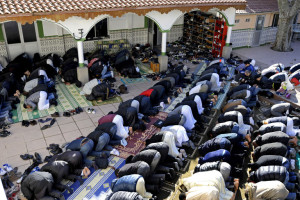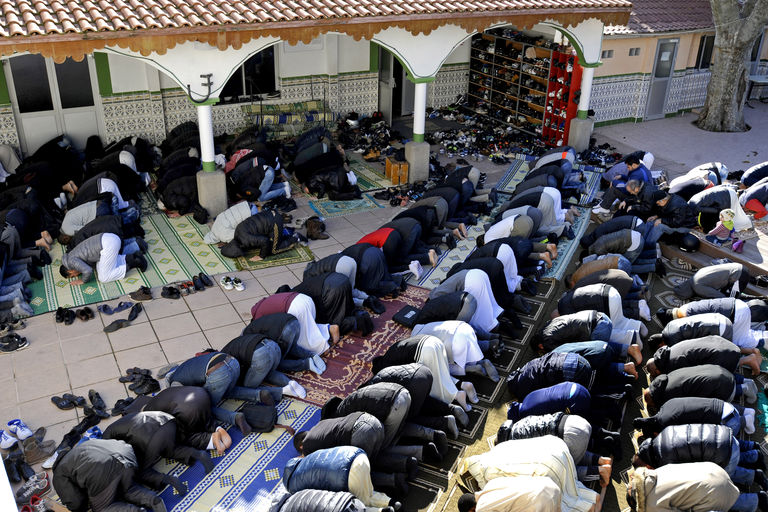During Ramadan, members of the Marseille chapter of the Association of Gay Muslims (HM2F) decided to break the fast together. “These moments are important, because they allow us to find ourselves and maintain a connection with the religion,” said Salim, age 22, who has been a member of the association since February 2015.
In HM2F, which is linked to the Progressive Muslims of France (MPF), everyone is free to practice their religion as they choose.
“For a long time, I couldn’t practice my religion. Now it’s different, even if I still have difficulty telling myself I can be gay and Muslim,” explains Adil, age 42. Even today, many gay Muslims find themselves in an identity crisis, or seeing homosexuality and Islam as two incompatible identities.
In Marseille, Salim, who is one of the local group’s coordinators, receives calls from young North African Muslims between 20 and 30 years old, who are scared of being rejected due to their sexual orientation. And for good reason, as Salim explains, it’s extremely difficult in cities such as Marseille where Arab-Muslim communities are very important: “The individuals are very dependent on their community. It’s thanks to the community that they have an identity. In a way, the community compensates for the lack of immigrant integration.”
Despite the miles that separate him from his family, Said cannot shed the importance of his community. “The only part of my religion that I still practice, it’s that I know God is merciful,” says the young Frenchmen of Moroccan origin.
For the anthropologist and founder of HM2F, Ludovic-Mohammed Zehed, the guilt is emblematic of certain communities’ “amnesia,” arguing that they rewrite history and their identities by condemning and excluding homosexuals. “They deny their existence, claiming that [homosexuality] came from the West,” he states. Zehed, who is the first French Muslim to be religiously married to a man, lists the supporting scientific arguments and the acceptance of homosexuals during the time of Mohammed.
The meal ends. Everyone gathers on the balcony to take in the fresh air. Music sounds above animated discussion. Hichem takes a piece of paper from his pocket. Nervously, he says he wishes to read the letter by Moroccan writer Abdellah Taia following the lynching of a gay man in Fez. Silence. Hichem begins reading in Un pays pour mourir: “Impossible to shed a tear. The shock I feel is such that everything in me ceases to exist…”
It is night but in the twilight faces move by sadness and incomprehension can be seen. From one side of the Mediterranean to the other, this “amnesia” seems to persist. The reading ends. “All is said,” concludes Said.







